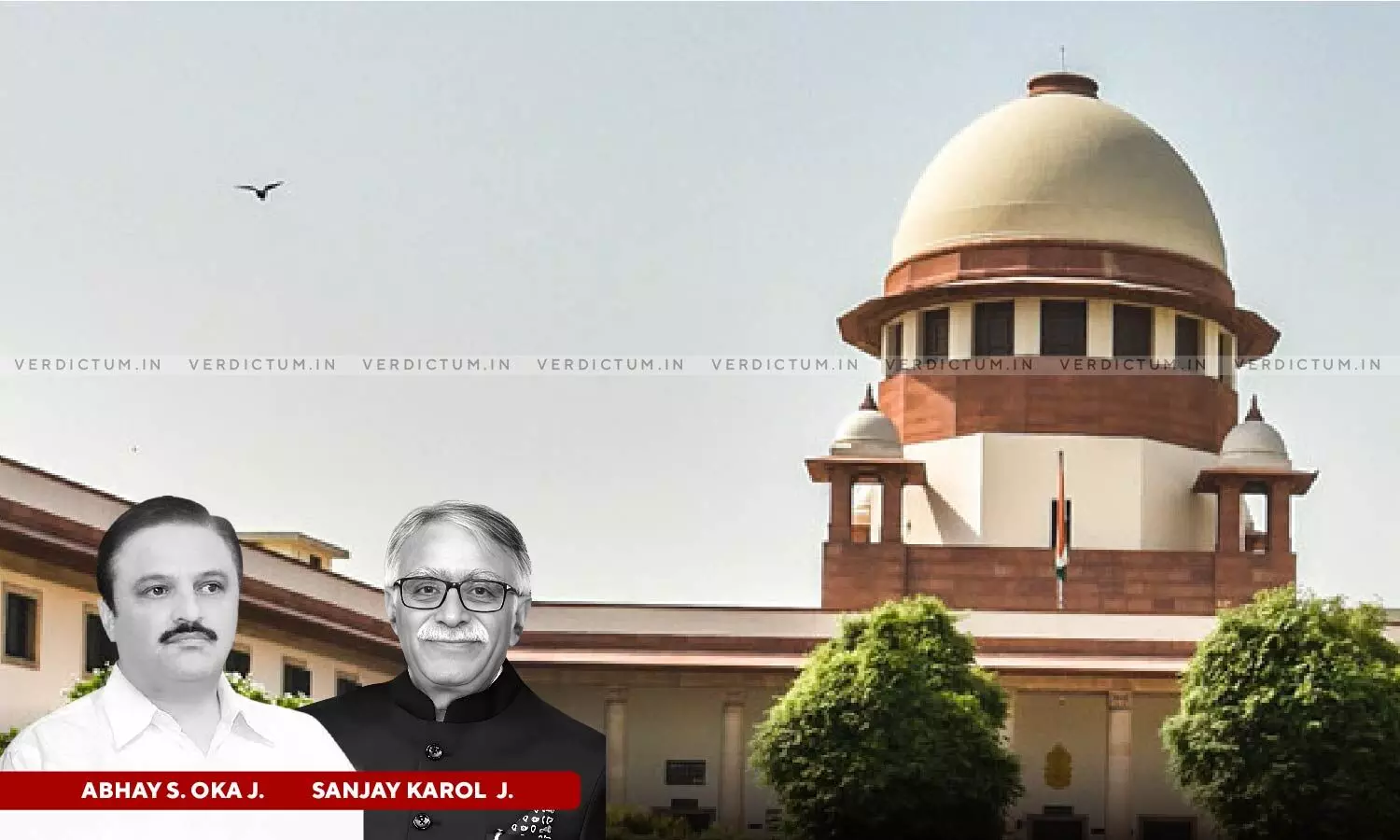
Section 1(3)(b) Of EPF Act| Central Government Can Bring Any Class Establishments Within Preview Of The Act, Including Factories Engaged In Industry Not Mentioned In Schedule I: Apex Court
 |
|The Supreme Court held that the Central Government, under Section 1 Subsection 3 Clause b of the Employees’ Provident Fund And Miscellaneous Provisions Act, 1952 (Act) has the vested power to designate a class to the establishments including factories engaged in any industry which is not specified in Schedule I of the Act.
The Court dismissed a Civil Appeal challenging the order of the Regional Provident Fund Commissioner (Commissioner) which had been upheld by the Appellate Tribunal, a Single Judge and a Division Bench of the Kerala High Court. The Commissioner had concluded that the Appellant establishment, dealing in the manufacturing and sale of umbrellas, fell in the category of trading and commercial establishments.
The Bench comprising Justice Abhay S. Oka and Justice Sanjay Karol held, “Clause (a) of sub-Section (3) is applicable only to those factories engaged in any industry specified in Schedule I. Clause (b) of sub-Section (3) is applicable to all other establishments which are not covered by clause (a) of sub section (3) provided such establishments are notified by a notification issued by the Central Government which is published in the official Gazette”.
Senior Advocate Joseph Kodianthara appeared for Thankamma Baby (Appellant) and Advocate Siddharth appeared for the Regional Provident Fund Commissioner/Respondent.
Thankamma, an umbrella manufacturer, was issued a notice for non-compliance with the Employees’ Provident Fund and Miscellaneous Provisions Act, 1952 (Act). The Commissioner held that Thankamma’s case was covered by a notification stating that the business fell in the category of ‘trading and commercial establishments’. Thankamma filed a review petition with the Commissioner, which was denied. He then filed an appeal with the Appellate Authority, which was also denied. A single-judge bench also dismissed Thankamma's writ petition, which was upheld by the Division Bench. Thankamma then appealed before the Supreme Court, challenging the High Court's order.
The Court noted that Clause (a) of sub-Section (3) Section 1 of the Act applies to factories that employ 20 or more people and are engaged in an industry specified in Schedule I. The Court observed that Thankamma’s establishment does not meet the abovementioned criteria, and therefore not covered by Clause (a).
The Court referred to the case of Mohmedalli and others v Union of India and another [1963 Supp (1) SCR 993] and noted that the Central Government has the authority to designate a class to the establishments that are not covered by Schedule I of the Act. Therefore, the Court observed that a notification under clause (b) can be issued for factories engaged in any industry that is not specified in Schedule I. As a result, the argument that a notification cannot be issued under clause (b) of sub-Section (3) for a factory engaged in an industry not covered by Schedule I was rejected.
“Clause (b) of sub-Section (3) takes within its fold all establishments which are not covered by clause (a). Therefore, a notification under clause (b) can be issued in respect of factories engaged in any industry which is not specified in Schedule I. Hence, the argument that a notification cannot be issued under clause (b) of sub-Section (3) regarding a factory engaged in an industry not covered by Schedule I cannot be accepted”, the Bench observed.
The Court held that Thankamma’s establishment was not exempted from Section 16 of the Act. The impugned notification defined a trading and commercial establishment as one that engages in the business of assembling/manufacturing and selling umbrellas. As such, this falls under the category of trading and commercial establishments as defined in the notification.
The Court emphasized that the Act is a social welfare legislation used as a measure of social justice. Therefore, purposive interpretation ought to be adopted to incorporate legislative intent while deciding the case.
Accordingly, the Court dismissed the Appeal and affirmed the impugned orders.
Cause Title: Thankamma Baby v The Regional Provident Fund Commissioner Kochi, Kerala (2023 INSC 987)
Click here to read/download Judgment